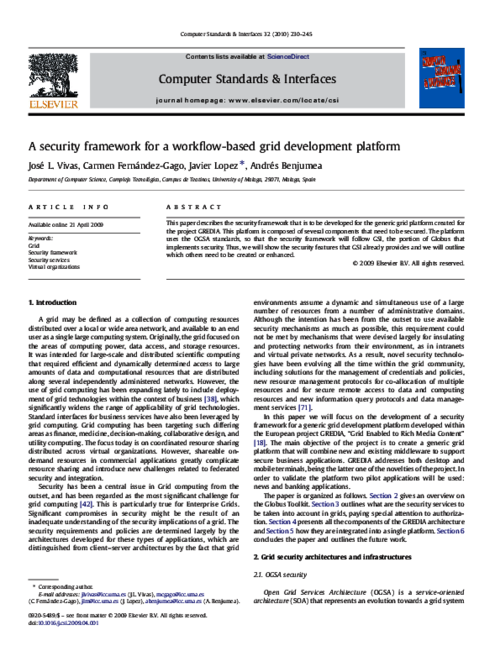 ]
] The 30th ACM/SIGAPP Symposium On Applied Computing (SAC 2015), pp. 1344-1349, 08/2015. DOI
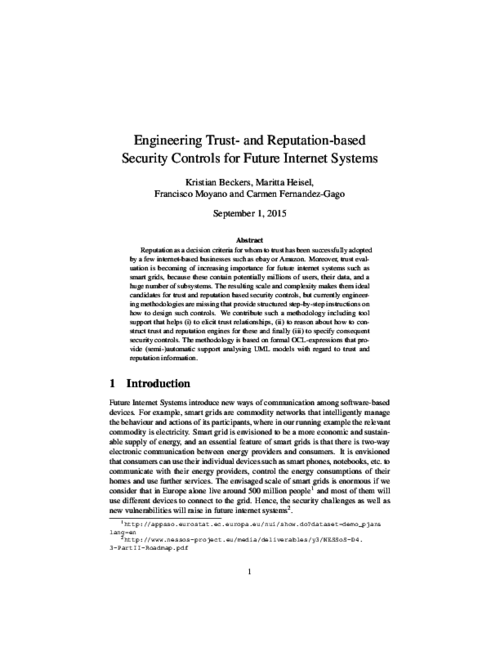
Engineering Secure Future Internet Services and Systems, vol. LNCS 8431, no. 8431, Springer, pp. 180-209, 03/2014. DOI
Abstract
The Future Internet (FI) comprises scenarios where many heterogeneous and dynamic entities must interact to provide services (e.g., sensors, mobile devices and information systems in smart city scenarios). The dynamic conditions under which FI applications must execute call for self-adaptive software to cope with unforeseeable changes in the application environment. Models@run.time is a promising model-driven approach that supports the runtime adaptation of distributed, heterogeneous systems. Yet frameworks that accommodate this paradigm have limited support to address security concerns, hindering their usage in real scenarios. We address this challenge by enhancing models@run.time with the concepts of trust and reputation. Trust improves decision-making processes under risk and uncertainty and constitutes a distributed and flexible mechanism that does not entail heavyweight administration. This chapter introduces a trust and reputation framework that is integrated into a distributed component model that implements the models@run.time paradigm, thus allowing software components to include trust in their reasoning process. The framework is illustrated in a smart grid scenario.
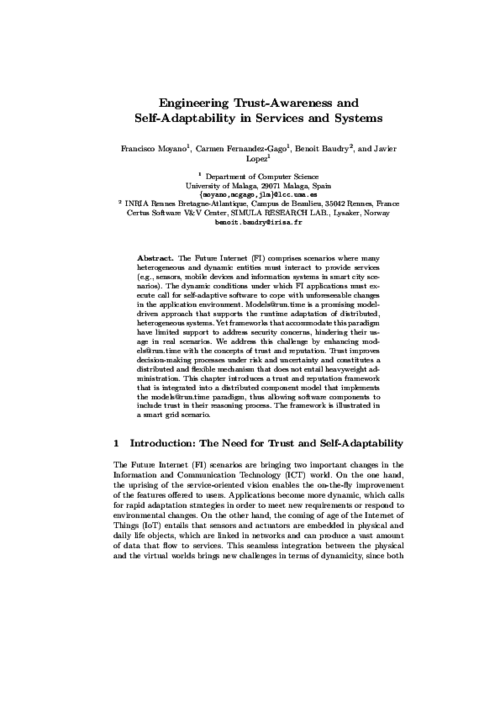
26th International Conference on Advanced Information Systems Engineering (CAiSE 2014), M. Jarke, et al. Eds., LCNS 8484, Springer, pp. 136-149, 06/2014. DOI
Abstract
Cloud sourcing consists of outsourcing data, services and infrastructure to cloud providers. Even when this outsourcing model brings advantages to cloud customers, new threats also arise as sensitive data and critical IT services are beyond customers' control. When an organization considers moving to the cloud, IT decision makers must select a cloud provider and must decide which parts of the organization will be outsourced and to which extent. This paper proposes a methodology that allows decision makers to evaluate their trust in cloud providers. The methodology provides a systematic way to elicit knowledge about cloud providers, quantify their trust factors and aggregate them into trust values that can assist the decision-making process. The trust model that we propose is based on trust intervals, which allow capturing uncertainty during the evaluation, and we define an operator for aggregating these trust intervals. The methodology is applied to an eHealth scenario.
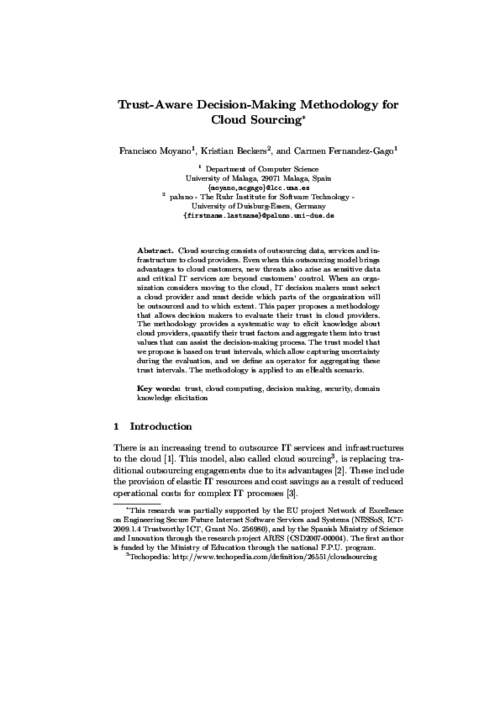
7th IFIP WG 11.11 International Conference on Trust Management (IFIPTM 2013), C. Fernandez-Gago, I. Agudo, F. Martinelli, and S. Pearson Eds., AICT 401, Springer, pp. 255-262, Jun 2013. DOI
Abstract
The Future Internet (FI) comprises scenarios where many heterogeneous and dynamic entities must interact to provide services (e.g., sensors, mobile devices and information systems in smart city scenarios). The dynamic conditions under which FI applications must execute call for self-adaptive software to cope with unforeseeable changes in the application environment. Software engineering currently provides frameworks to develop reasoning engines that automatically take reconfiguration decisions and that support the runtime adaptation of distributed, heterogeneous applications. However, these frameworks have very limited support to address security concerns of these application, hindering their usage for FI scenarios. We address this challenge by enhancing self-adaptive systems with the concepts of trust and reputation. Trust will improve decision-making processes under risk and uncertainty, in turn improving security of self-adaptive FI applications. This paper presents an approach that includes a trust and reputation framework into a platform for adaptive, distributed component-based systems, thus providing software components with new abilities to include trust in their reasoning process.
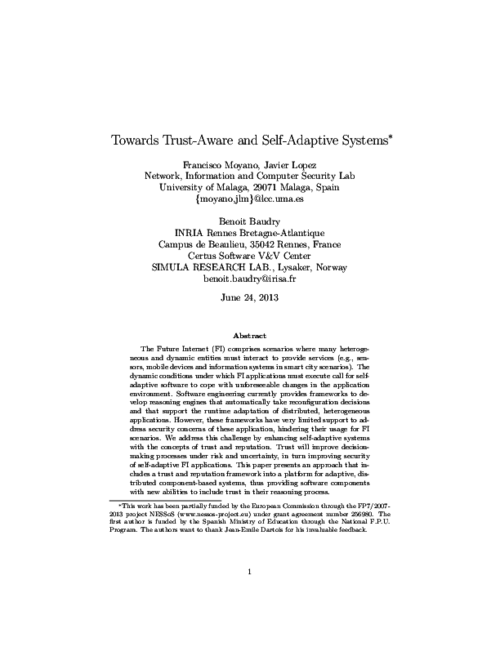
Computer Standards and Interfaces, vol. 32, no. 5-6, Elsevier, pp. 230-245, Oct 2010. DOI
Abstract
This paper describes the security framework that is to be developed for the generic grid platform created for the project GREDIA. This platform is composed of several components that need to be secured. The platform uses the OGSA standards, so that the security framework will follow GSI, the portion of Globus that implements security. Thus, we will show the security features that GSI already provides and we will outline which others need to be created or enhanced.
